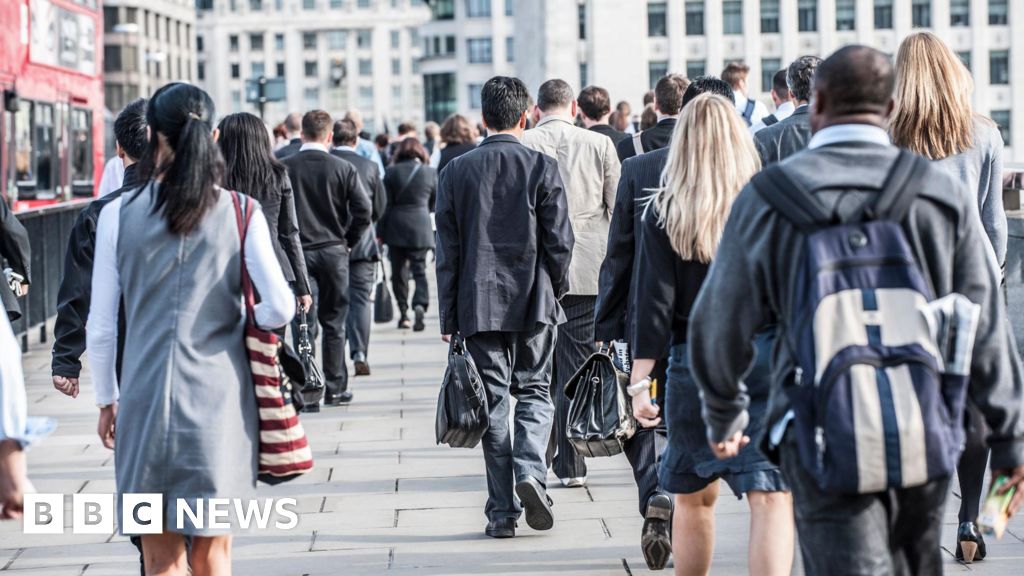The IMF said the UK’s economy was “approaching a soft landing” after last year’s mild recession.
It upgraded its growth forecast marginally for this year from 0.5% to 0.7%, and predicted growth of 1.5% in 2025.
While UK inflation, the rate at which prices increase, is expected to fall close to the Bank of England’s target of 2% on Wednesday, it is then set to rise a little over the course of the rest of the year, before “durably” settling at the target rate in early 2025, the Fund said.
When it came to interest rate cuts, the IMF noted the Bank had to balance the risk of not cutting too quickly before inflation is under control, against that of keeping rates too high, which could hit growth.
But speaking at a news conference, Ali Abbas, the IMF UK mission chief, said the Fund recommended cutting the current Bank rate of 5.25% to either 4.75% or 4.5% by the end of the year.
It also recommended further cuts in 2025, taking the rate as low as 3.5%.
“Our recommendation is for 50-75 basis points [0.5-0.75% points] this year, plus we project and this is also this is our recommendation of 100 basis points [1% point] cuts in 2025,” Mr Abbas said.
The IMF warned the next government faced “difficult choices” on taxes and spending, and said it would not have recommended the recent cuts to National Insurance “given their significant cost”.
The Fund assumes that the government will have to spend significantly more on public services over the next five years, meaning that its self-imposed target for falling debt as a share of national income will not be met. This leads to a gap of about 1% of UK gross domestic product (GDP), or £30bn a year.
Given the state of the public finances, the IMF said it would “advise against additional tax cuts”.
In January, the Fund had also advised against tax cuts but the government announced another cut to National Insurance in the March Budget.
IMF managing director Kristalina Georgieva told a news conference that the UK needed to bolster its public finances, which were hit by heavy spending during the Covid pandemic.
“We are genuinely concerned, not just for the UK, [but] for all countries that have used fiscal buffers extensively, that they must do more to rebuild these buffers,” she said.
“In a world of more uncertainty, we do not know when there may be again a call on governments to have to borrow more to spend more.”
Credit: Source link











